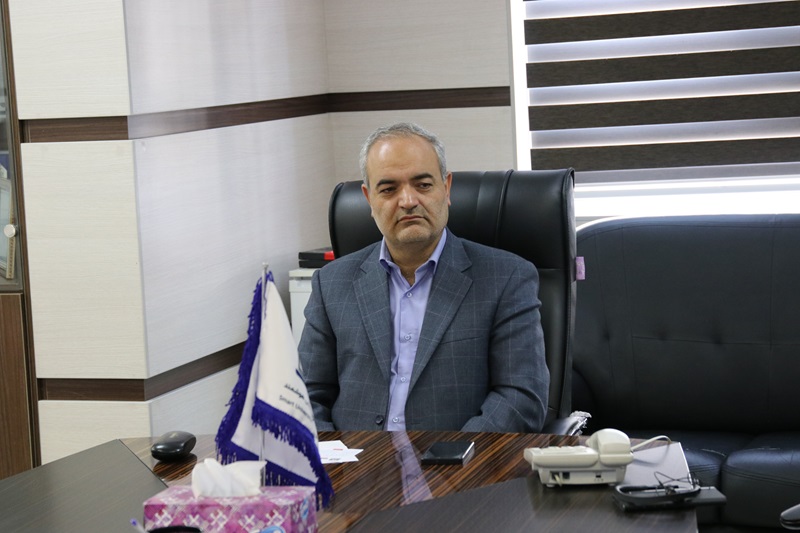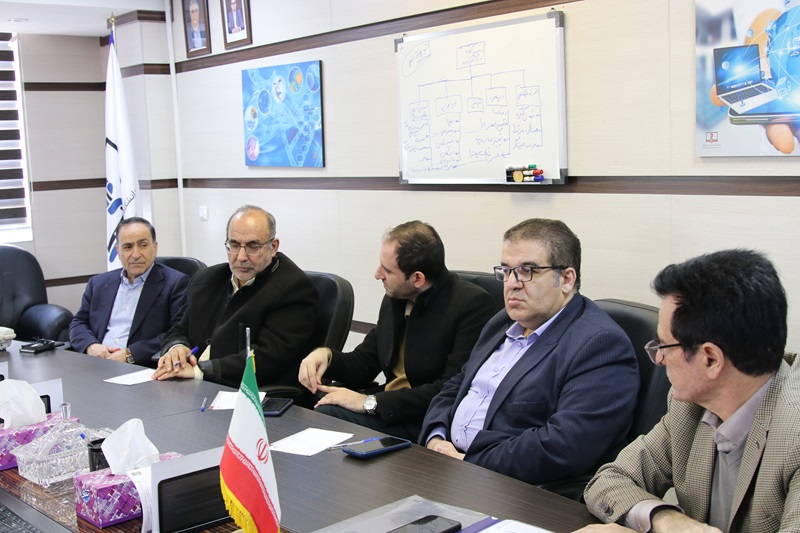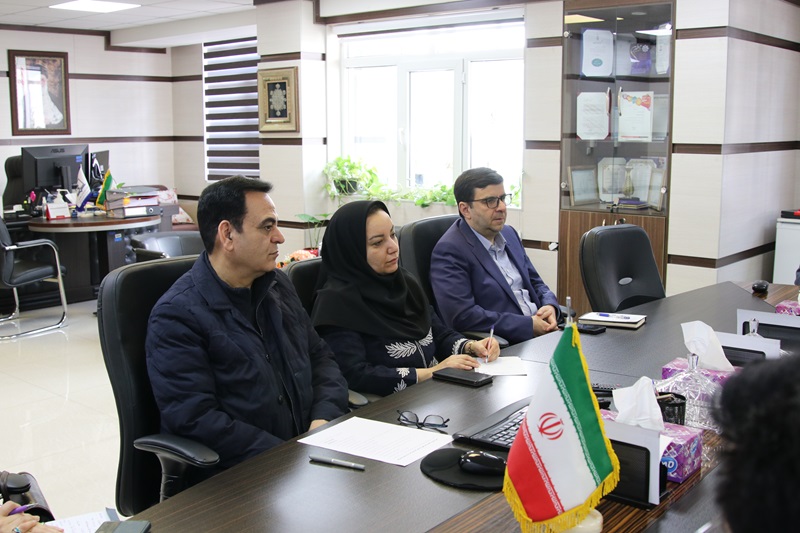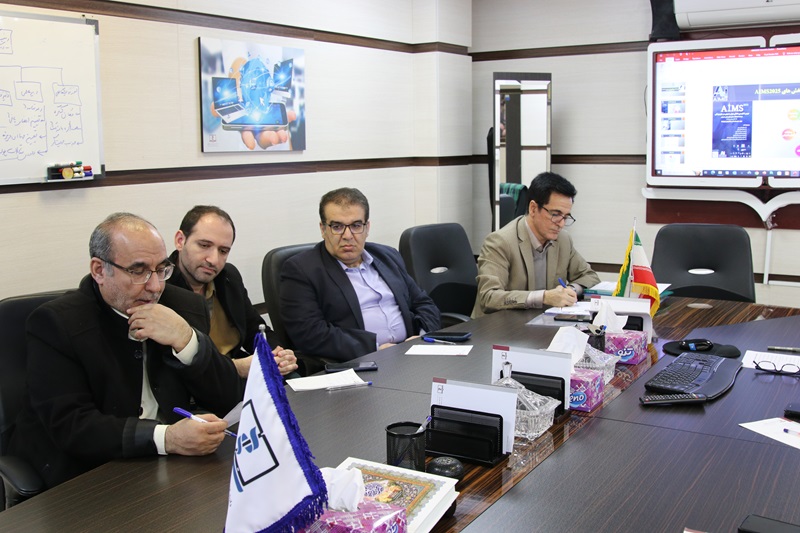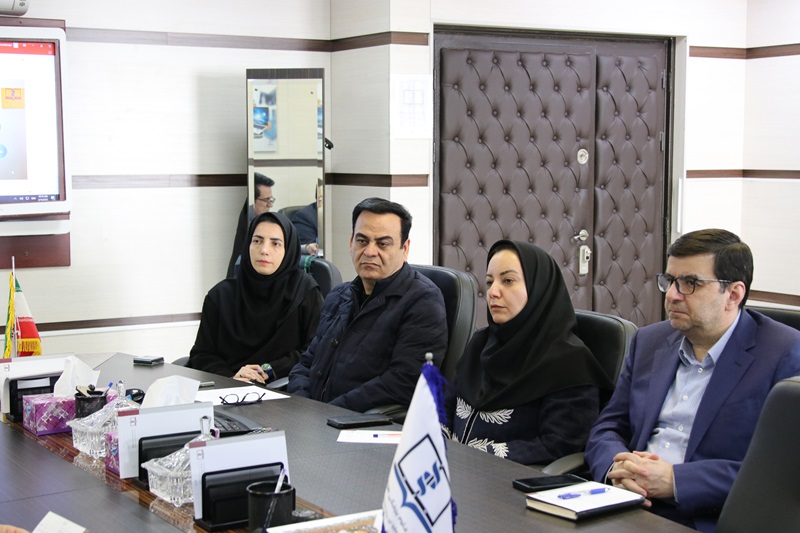The Policy Council meeting of the 2nd International Congress on Artificial Intelligence in Medical Sciences took place, during which a comprehensive report on the Congress Secretariat's scientific and executive activities was presented.
Public Relations of Smart University of Medical Sciences – The session commenced at 9:30 AM on Monday, March 10, 2025, in the university president's office. Dr. Bakhtiari, Chancellor of Smart University of Medical Sciences and Chairman of the 2nd International Congress on Artificial Intelligence in Medical Sciences, delivered the opening remarks, welcoming attendees and wishing them success in their efforts.
In his report, Dr. Bakhtiari highlighted the impressive reception of the Congress, noting that over 1,600 participants had registered and more than 470 articles had been submitted. He underscored the university's responsibility in maintaining high-quality standards and the importance of leveraging both national and international resources to enhance the event.
Dr. Sabet, the Scientific Secretary, then provided an in-depth report on the Congress's scientific initiatives. He detailed the establishment of seven main themes for the Congress, the selection and introduction of keynote speakers, and the appointment of panel managers. He also shared progress on drafting the initial schedule for the three-day event and organizing three specialized pre-congress meetings. Additionally, Dr. Sabet emphasized the importance of inviting international experts and researchers to enhance the Congress's scientific reach and collaboration.
Following this, Dr. Hashemian, the Executive Secretary, presented updates on the logistical and organizational preparations for the Congress. He discussed the formation of specialized committees that would oversee various aspects of the event. Two pre-congress meetings had already taken place in March, with another scheduled for April. Dr. Hashemian highlighted the ongoing efforts to send invitations and coordinate with panel chairs, as well as the design of promotional materials and the launch of social media campaigns to raise awareness of the Congress. The team has also been managing the Congress website, planning the exhibition section, and arranging audiovisual equipment for the event. Dr. Hashemian further explained how they were handling international communications, responding to participant inquiries via phone and email, and documenting all Congress-related activities to ensure everything ran smoothly.
Later in the meeting, Dr. Minai, a Policy Council member and faculty member at Iran University of Science and Technology, commended the Secretariat for their well-organized efforts. He emphasized the importance of applying the Congress's findings in practice and proposed creating a national platform for medical data exchange, suggesting that Smart University of Medical Sciences take the lead. He also advocated for collaborative agreements among universities to support joint projects aligned with the Congress’s themes and recommended forming a permanent panel on medical data exchange post-Congress.
Subsequently, Dr. Ghanei, a Policy Council member and Secretary of the Biotechnology, Health, and Medical Technologies Headquarters under the Vice Presidency for Science, Technology, and Knowledge-Based Economy, stressed the importance of linking all stages of the Congress—from planning to practical application. He encouraged Smart University of Medical Sciences to develop a structured framework to facilitate this connection, highlighting the necessity of providing researchers and knowledge-based companies with access to Ministry of Health medical cohort data within a secure legal framework. This, he urged, would help drive the development of health-related products tailored to national needs.
The session concluded with insights and recommendations from other council members.
The Policy Council meeting was attended by Dr. Bakhtiari, Chancellor of Smart University of Medical Sciences and Chairman of the 2nd International Congress on Artificial Intelligence in Medical Sciences, along with Dr. Minai and Dr. Ghanei. Also present were Dr. Sabet, the Scientific Secretary, and Dr. Hashemian, the Executive Secretary. Members of the University’s Executive Board participated in the session, as did Dr. Momenzadeh, Head of the AI Department and Deputy Scientific Secretary.
